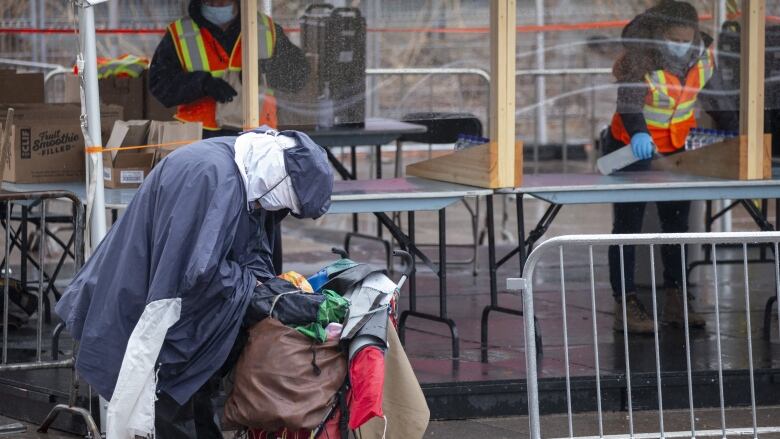New program will help homeless Indigenous people manage addiction, find housing
Community group ProjetsAutochtones du Qubec is behind pilot project, expected to begin Nov. 1

Some of Montreal's most vulnerable people will have a new housing option this fall.
A new pilot project launched by the community group ProjetsAutochtones du Qubec will create long-term housing for Indigenous people with severe alcohol addictions.
It's part of what advocatescall a managed alcohol program participants are provided with a safe amount of alcohol to consume every day.
Heather Johnston, the executive director of PAQ, says that based on findings from similar programs in Canada, having a stable living environment is critical for success.
This project, therefore, aims to control the quantityand quality of alcohol clients are consumingwhile also giving them a long-term place to live.
Between six andeight people will take part, and the hope is to have it open by Nov. 1, Johnston said.
"The idea is to be able to open a facility for people who are older, who are aging, who are finding it increasingly difficult to navigate the streets every day but need a long-term housing option that will adapt to their needs," she said.
Researchers will also be studying the pilot project in order to understand what does and doesn't work.
Managed alcohol programs are recognized harm-reduction strategies. They're used in other cities, Johnston says, and the outcomes are generally positive.
"Montreal is very far behind," she said. "The first managed alcohol program opened in Toronto 20 years ago."
Johnston says they're still ironing out the details of the housing. She's not sure where it will be, or whether it will include several apartments or a shared living arrangement.
Plans back on track
The money for thepilot project will come from Indigenous Services Canada, but Johnston said they expect to be able to keep the project going once the initial funding runs out in the spring.
Last fall, the Quebec government and the City of Montreal pledged $5.45 milliontoward resources for homeless people, including $3 million to open the city's first wet shelter,a general term for facilities where vulnerable people are allowed to consume alcohol under supervision.
It was supposed to open in the spring, but the call for proposals was derailed by the pandemic.
Johnston said she is hoping that doing this pilot project, with the accompanying research study, will allowher organization to submit a strong proposal when the time comes.
Eric Forest, a spokesperson for theCIUSSS Centre-Sud, said the heath authority is working with the city to make the wet shelter a reality, and the call for tenders for the project, which he described as a priority,will be issued soon.
With files from Kate McKenna












_(720p).jpg)


 OFFICIAL HD MUSIC VIDEO.jpg)
.jpg)



























































































